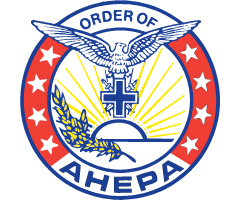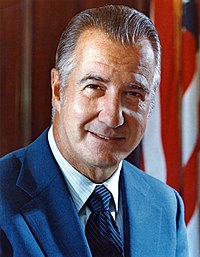The name Ku Klux Klan derives at its 2/3 from the greek word κύκλος=kyklos which means circle. Many of its founding members were admirers of the Greek civilization. However this didn't stop them from persecuting Greek immigrants.
The KKK was founded in 1865 in Tenesee but was disbanted 20 years later. In 1913 a second KKK was founded in Atlanta by a protestant pastor. During the height of its power it had 5 million members, but eventually this one was disbanted too under pressure of moral scandals and accusations of collaboration of the KKK with the Nazis. The organization was founded for a third time as a reaction to a law that the Congress implemented about tolerance and social equality.
The American perspective on Greek immigrants
One of the numerous national and religious communities that the KKK targeted were the Greeks. Many Greeks migrated to the U.S during the late 19th and early 20th century
Although most of them were uneducated workers who were forced to leave because of the meagre economic prospects of Greece they kept their customs and traditions resisting to foreign influences. This proved to be a negative point towards their assimilation to the American society and a very good pretext for the xenophobic KKK to turn against them.
All these young Greeks worked very hard in order to achieve a financial stability. Most of them came to America only with their clothes. Their hard work involved also some "less prestigious" jobs like sellers of small items at the streets without the permission of the authorities. Such illegal jobs caused troubles between the Greeks and the police.
 |
| 1910, A greek immigrant wearing a Cretan outfit |
In a report(D.Mingham Commission report,1911) the Greek immigrants were characterized as uneducated people without proper manners with bizarre names, language and customs.This harsh report represented the Greek immigrants as sub-human beings.
The bad relations of the Greeks with the police led to the first and last pogrom conducted by KKK against Greeks. Particularly in 1919 after an argument between a Greek worker and an American policeman in the town of South Omaha in Nebraska the worker killed the officer. This event along with the economic crisis and the unemployment increased the temper in the area and many Americans aimed to unleash their anger on the Greek community. The KKK accused the 2.500 Greeks who worked in the town for everything bad that happened to U.S and compelled the rest of the town to turn against them by representing them as a threat who steal jobs from Americans. A local newspaper following the tensions that prevailed wrote that "We must get rid of these hideous people for killing our officer. One drop of American blood is more valuable than the blood of all the Greeks in the world."
As a result in the evening of the 21rst of February in 1909 an angry mob invaded in the Greek quarter utterly destroying it. The Greek communities in the US protested to the the federal government for the incident, which in turn paid large sums as compensation.
These events made the Greek Americans to reorganise themselves. They had to aim at their successful integration in the American society so that they wouldn't be a target of xenophobic groups anymore. In 1922 a Greek organisation called Ahepa(American Hellenic Educational Progressive Association) was founded in Atlanta under Georgios Nikolopoulos and Ioannes Aggelopoulos. At the beginning they were active in areas were the KKK was having a big influence but later they expanded all over the U.S with the purpose of making easier the settling of Greek immigrants in America and protect them from KKK.
At some point Ahepa reached the other side and was accused of dehellinizing the immigrants. However they achieved to change the image Americans had on the Greeks and made the Greek American community a progressive and respective element in the American society.
 |
| the symbol of AHEPA |
The last reaction against Greeks by KKK was in 1970 during the electorial campaigns. Robert Shelton turned against the Greek descended vice president Spyro Agnew(Spyros Anagnostopoulos) and despite that Agnew's mother was American and he himself was a Protestant ,Shelton characterized him as a malevolent Greek who is coming to give false promises in order to gain votes.However this was a weak attack from a weak organization which was only a shadow of what it used to be.
 |
| Spyro Agnew |
source: magazine ιστορικά θέματα
translation made by me










